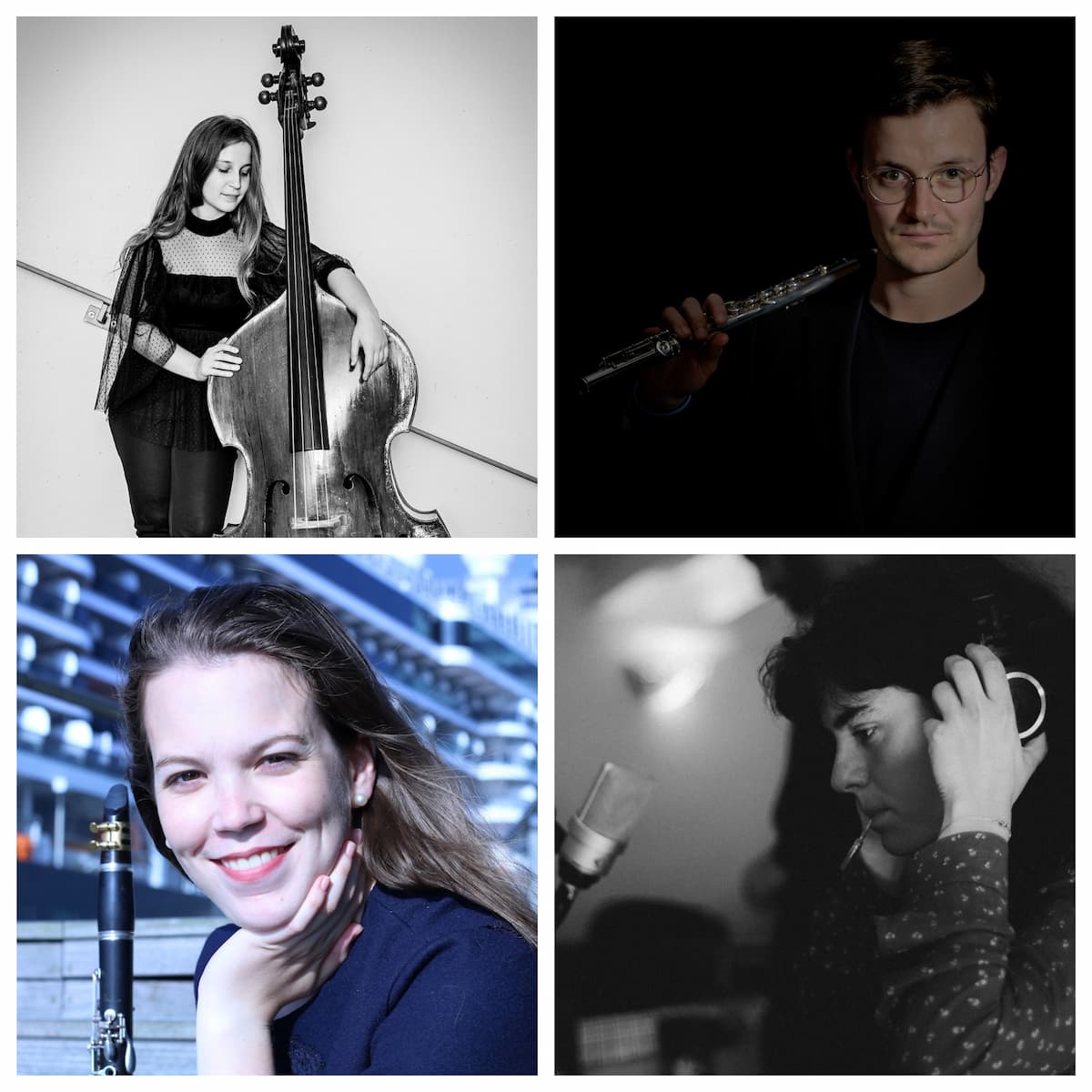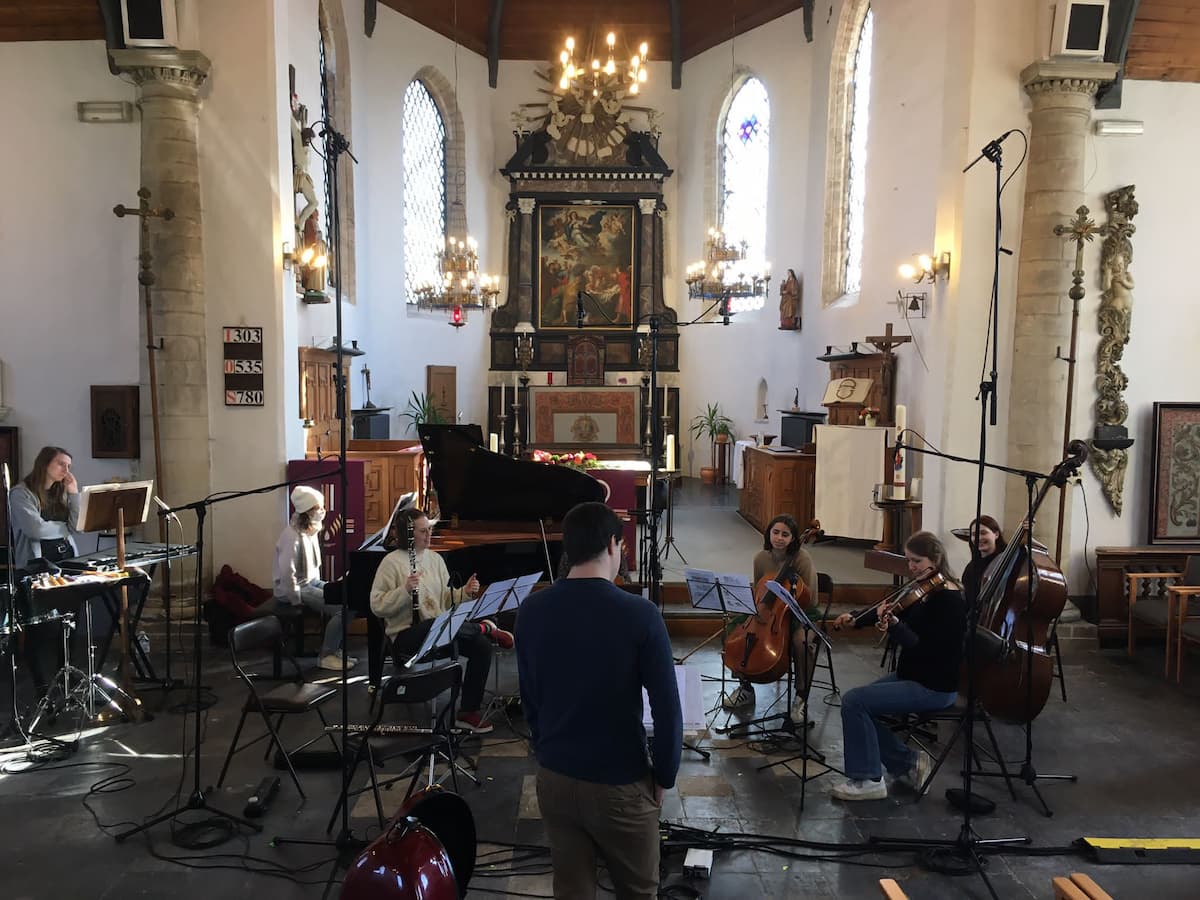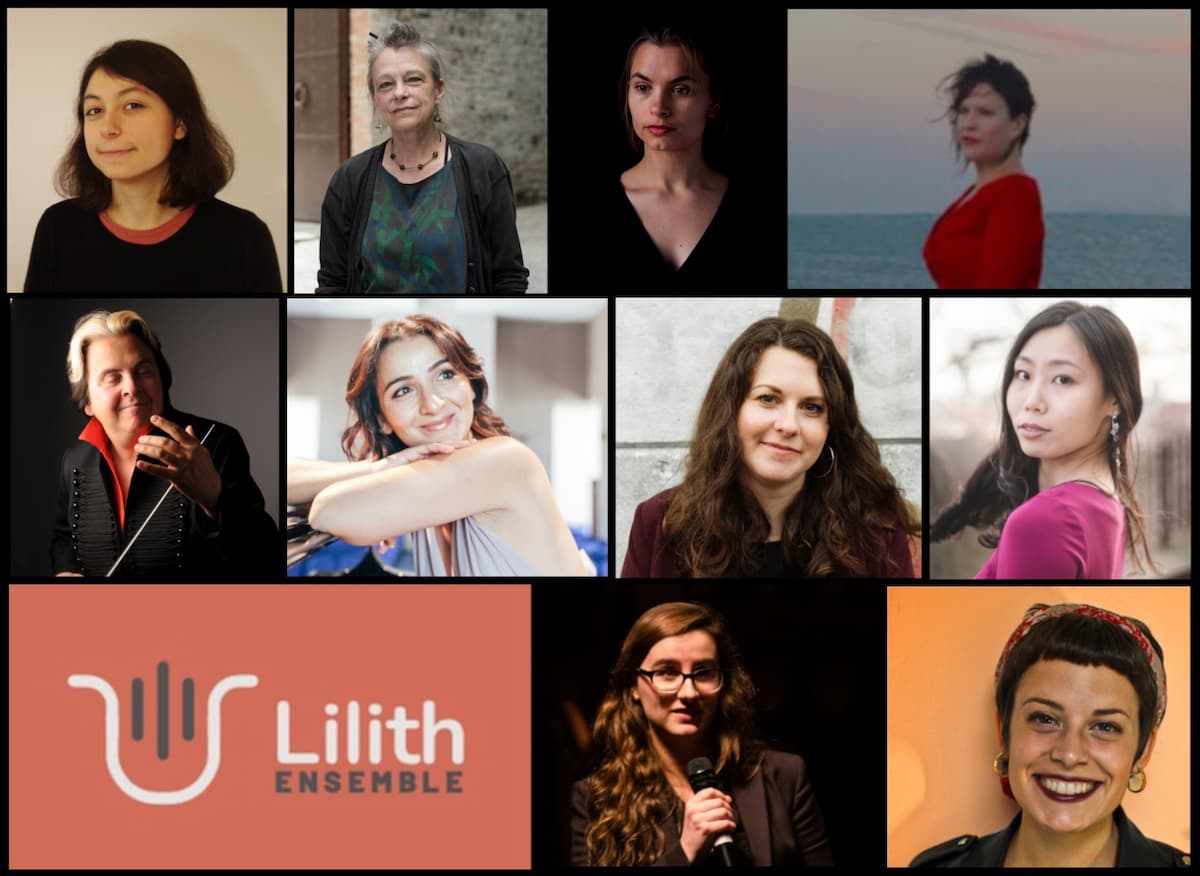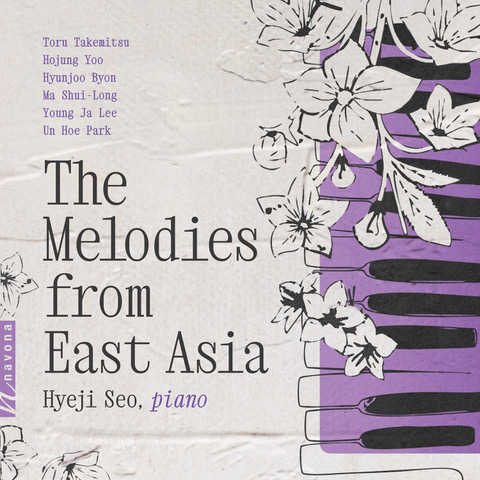Lilith, the reputed first wife of Adam who made her quick departure when equality wasn’t what Adam had in mind, is the inspiration and almost the driving force behind this new ensemble that started at the Koninklijk Conservatorium Antwerpen (Belgium) and at the Conservatorium van Amsterdam (The Netherlands). Cèlia Tort Pujol, Eline Cote, Jaume Darbra Fa, and Leire Ruiz Garcia came together in 2020, all via Zoom, to put together the idea and drive behind the Lilith Ensemble.

Jaume Darbra Fa – Flute
Cèlia Tort Pujol – Oboe
Leire Ruiz Garcia – Clarinet
Eline Cote – Double Bass
Their driving belief is that females should have the same exposure as males in the music world, especially in the area of composition and creation. Their mission statement makes an important point about their inclusivity: Our mission is to perform compositions written by women, feminine, and gender non-binary people of all races, classes, abilities, nationalities, religious backgrounds, and sexualities.
We all know that there’s little music by women that has a place on the classical platform. Fewer than 10% of composers performed by the leading orchestras of the day are women. To address this, the Ensemble decided to commission contemporary female composers only for their first album. After a call for crowdfunding that met an enthusiastic response and a call to composers that brought in 50 applications, they decided on their 10 chosen works and set out to record them. That record releases in May 2024. In keeping with their ideas of equality and equity, the Lilith Ensemble is split 50/50 between males and females. Even on their recording, there’s one male conductor and one female conductor.
The constraints on the composers were scant: 10 minutes and 10 musicians maximum. They didn’t say ‘NO’ to anything and were surprised by the result. They hadn’t fully considered just how many different pieces of percussion a composer could call for to be played by a single person! On the whole, however, most pieces called for standard instruments in quartets or quintets, some vocals or vocalizations, and could be easily accommodated in a recording session. In the end, 22 musicians appear on the CD, and in two cases, it’s the composer who’s performing, one as a vocalist and one as a conductor.

The Lilith Ensemble recording session at Het kerkje van Millegem
The album opens with Helen Caddick’s We Are Here, which comes from an Afghani women’s protest against the Taliban, where they were reminding everyone that they required work and education as much as the men. As Morse Code taps out ‘we are here’, speech rhythms state ‘we will continue to fight’, whilst a child’s spinning top sounds as a call to future generations. It’s both a melancholic and sobering musical work on women and the oppression they face around the world.
It was the final work, Ik ga op reis en ik neem mee (I’m going on a trip and I’m taking with me), by Frieda Gustavs that challenged the ensemble most. The composer is the vocalist, but the ensemble itself also has a voice in the work. The work is driven by the double bass, which plays as a kind of train click-track underneath everything, slowing and speeding up as necessary. It’s a building song: I’m going on a trip…and each new person adds a piece of necessary luggage which must be remembered by the next person, and so on. The text of the song itself is in at least four languages, English and Dutch among them, with the occasional bit of gibberish.
Every track has something to offer – Elgdans by Spanish composer Sílvia Lanao summons up a dancing Norwegian moose. Chinese composer Qingye Wu sets poems by Tagore and British composer Chloe Knibbs sets Irish poet Yeats’ Innisfree to music. Other composers come from the US, Armenia, Cuba, Belgium, and The Netherlands. It was an international effort, and all were conducted online. Not even musicians in the same city could meet together during the height of the global lockdown.

Collage of Composers on Album: Top: Left to right: Maya Verlaak, Mary Jane Leach, Frieda Gustavs, Helen Caddick; Middle: Odlaline de la Martinez, Tatev Amiryan, Chloe Knibbs, Qingye Wu; Bottom: Marlies Hollevoet, Sílvia Lanao
These are contemporary works that challenge both the performer and listener, and to help with this, on their launch concert on May 25, the ensemble is bringing 4 composers for discussions of their works. The ensemble isn’t launching these works out to an unheeding public – they want you to know the thought behind them, the ideas that stimulated the composers, and the discussions with the ensemble on the final work. The commissioning structure enabled Lilith to ask composers to show them (and the world) who they are and provided the ensemble to play that answer.
As this all started in 2020, it is another of the amazing COVID projects that musicians have devised to keep their work moving. New music, new concepts of sound, and new performances were inspirations to so many. Now, the ensemble can meet together – Zoom rehearsals happened, too – and meet the composers as well. More importantly, Lilith is providing a platform for the hardest genre to crack: new music by women.
Launch date: 25 May 2024, 16:30
Place: Schouwburg Noord, Antwerpen

Lilith Ensemble: Works by Female Composers
Lontano Records Ltd: LNT148
For more of the best in classical music, sign up for our E-Newsletter

